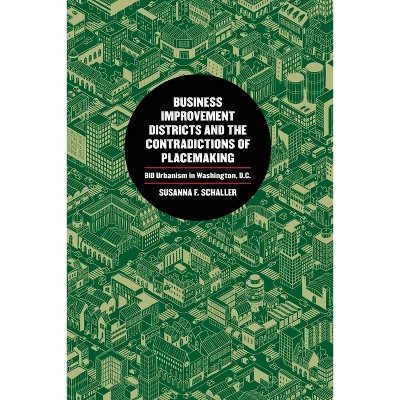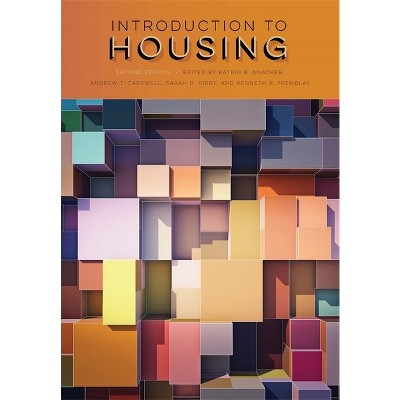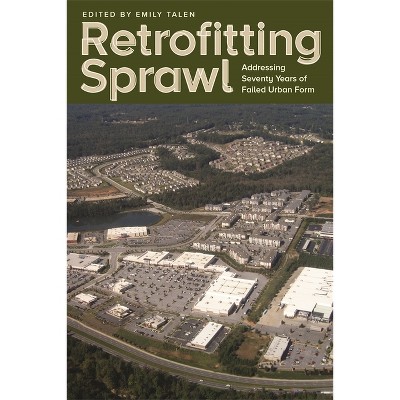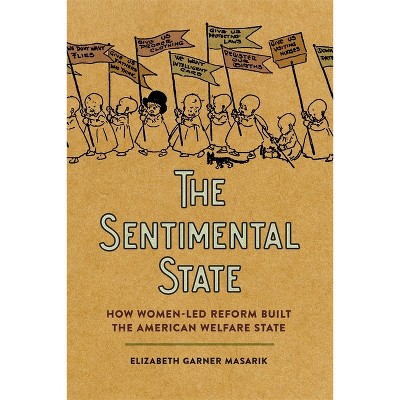Diverging Space for Deviants - by Akira Drake Rodriguez (Paperback)

About this item
Highlights
- This book explores the often-overlooked positive role of public housing in facilitating social movements and activism.
- About the Author: AKIRA DRAKE RODRIGUEZ is a joint lecturer at the University of Pennsylvania's Weitzman School of Design and Social of Social Policy and Practice.
- 268 Pages
- Political Science, Public Policy
Description
About the Book
"This book explores the typically overlooked positive role of public housing---in a political, social, and spatial sense---in facilitating social movements and activism. With Atlanta as the case study, the author suggests that the decline in support for public housing, often touted as a positive (neoliberal) development, actually has negative consequences for social justice and nascent activism, especially among black women. Urban renewal policies target public housing residents by demolishing public housing towers and dispersing poor (black) residents into new, deconcentrated spaces in the city via Housing Choice Vouchers and other housing-based tools of economic and urban development. Deviants in Divergent Spaces establishes alternative functions for public housing developments that would necessitate their existence in any city. In addition to providing affordable housing for low-income residents - a necessity as wealth inequality in cities is increasing - public housing developments function as a necessary political space in the city, one of the last remaining frontiers for citizens to engage in inclusive political activity and make claims on the changing face of the State"--Book Synopsis
This book explores the often-overlooked positive role of public housing in facilitating social movements and activism. Taking a political, social, and spatial perspective, the author offers Atlanta as a case study. Akira Drake Rodriguez shows that the decline in support for public housing, often touted as a positive (neoliberal) development, has negative consequences for social justice and nascent activism, especially among Black women. Urban revitalization policies target public housing residents by demolishing public housing towers and dispersing poor (Black) residents into new, deconcentrated spaces in the city via housing choice vouchers and other housing-based tools of economic and urban development.
Diverging Space for Deviants establishes alternative functions for public housing developments that would necessitate their existence in any city. In addition to providing affordable housing for low-income residents--a necessity as wealth inequality in cities increases--public housing developments function as a necessary political space in the city, one of the last remaining frontiers for citizens to engage in inclusive political activity and make claims on the changing face of the state.Review Quotes
Diverging Spaces for Deviants . . . is a useful addition to the literature dealing with the history of public housing and, more specifically, the role that tenant associations have played in it. . . Rodriguez does an especially good job in demonstrating the important role of Black individuals in Atlanta's public housing story--tenant activists, politicians, members of the civic elite.--David P. Varady "Journal of Housing and the Built Environment"
Diverging Spaces for Deviants' Black feminist framework offers an original, thought provoking and meticulously sourced work. . . . This book contributes a wealth of knowledge surrounding the topic of public housing in the United States, the under-researched radical activism of the Black public housing tenants during Jim Crow, and the influence of the women-led tenant associations. Rodriguez's expertise makes for a timely contribution to urban planning, sociology, policy and history.--Tyler McCoy Gay & Deirdre Oakley "Journal of Urban Affairs"
Akira Drake Rodriguez makes her mark by chronicling more than a discussion of despair, detailing exactly how and why Atlanta's public housing became a political opportunity structure where Black women waged a fight for tenancy and liberation. . . . Rodriguez should be commended for seeing beyond the epistemological conditions of the unsettling intellectual fields of welfare, housing, and urban policing for her ability to center what the on-the-ground stakes look like historically and contemporarily for those in movement toward Black freedom dreams.--Deshonay Dozier "Taylor & Francis Online"
Rodriguez's work enriches scholarship on public housing, certainly, but also provides a valuable political history of poor Black women.--Ted Rutland "Sage Journals"
Rodriguez's interrogation of Atlanta's public housing politics has implications for other U.S. regions. . . . Relevant not only to those studying housing but also Black politics, Black feminism, and Atlanta and other majority Black places.--Michael Lens "Journal of the American Planning Association"
About the Author
AKIRA DRAKE RODRIGUEZ is a joint lecturer at the University of Pennsylvania's Weitzman School of Design and Social of Social Policy and Practice. She received her PhD in planning and public policy from Rutgers University. She was born in Alexandria, VA, and grew up in Louisville, KY. She lives with her husband and son in Philadelphia, PA.




